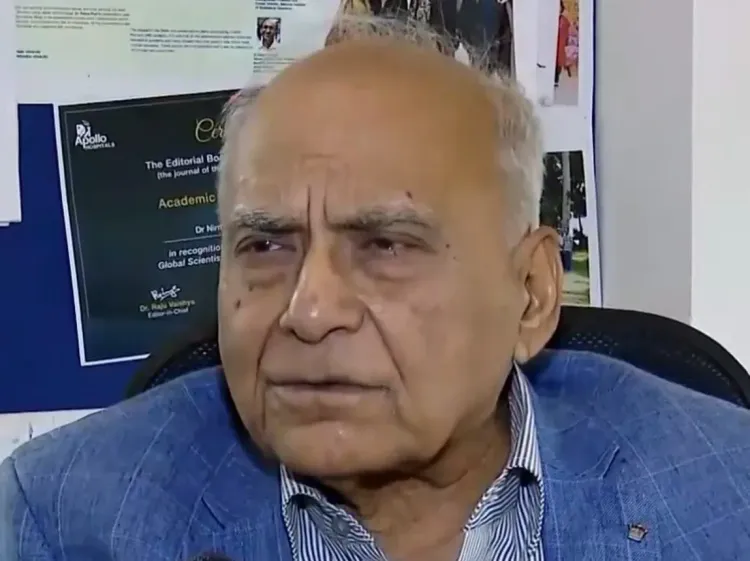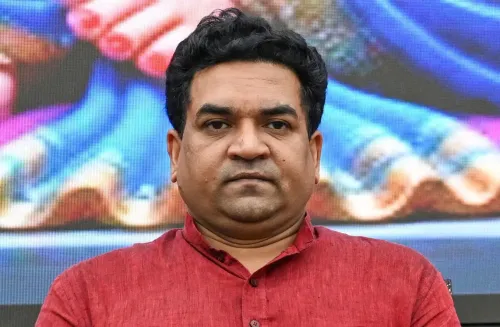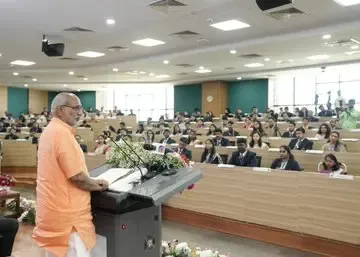Will US Tariffs on Indian Pharmaceuticals Increase Drug Prices for Americans?

Synopsis
Key Takeaways
- India supplies 80% of global generic medications.
- U.S. tariffs could increase drug prices in America.
- India's pricing policies support affordable medicines.
- Life-saving drugs for cancer and HIV are produced in India.
- Higher tariffs may harm American consumers more than India.
New Delhi, Aug 12 (NationPress) The trade dispute between India and the United States is intensifying, as the U.S. considers a 50 percent tariff on Indian imports. What are the potential consequences for India's pharmaceutical industry? Dr. N.K. Ganguly, the former Director General of the Indian Council of Medical Research (ICMR), provided his insights to IANS.
Dr. Ganguly remarked, "India's pharmaceutical industry is responsible for nearly 80 percent of the global supply of generic medications. The country implements a pricing strategy for drug production that helps maintain low costs for consumers. Medical professionals in India are encouraged to recommend generic alternatives, and various government initiatives ensure that medicines remain accessible. Patients can order medicines online, and through the Pradhan Mantri Janaushadhi Yojana, they are offered at lower prices."
He elaborated that crucial medications, including those for cancer and HIV, are produced in India, and tariffs on these drugs have been minimized. This facilitates access for nations in need at reasonable costs.
In light of the current tariff conflict, Dr. Ganguly stated, "When any nation raises tariffs, it does not yield positive outcomes; rather, it is detrimental. India not only produces affordable medicines but also imports them. Conversely, drug prices are substantially higher in areas like Europe and North America."
He also highlighted that few nations aside from India manufacture such pharmaceuticals. Many countries lack the capability to produce generic drugs due to the necessary workforce, manufacturing facilities, and infrastructure, which are significantly more costly overseas. Consequently, these countries depend on imports for generic medications.
Dr. Ganguly concluded by asserting that the anticipated U.S. tariffs will not negatively impact India. "The true consequences will affect the countries enforcing the tariffs. India is the largest global producer of affordable medicines. Therefore, the nation that imposes higher tariffs will inadvertently harm its own citizens, who will face increased costs for vital medications. India, in contrast, will remain largely unaffected," he stated.









